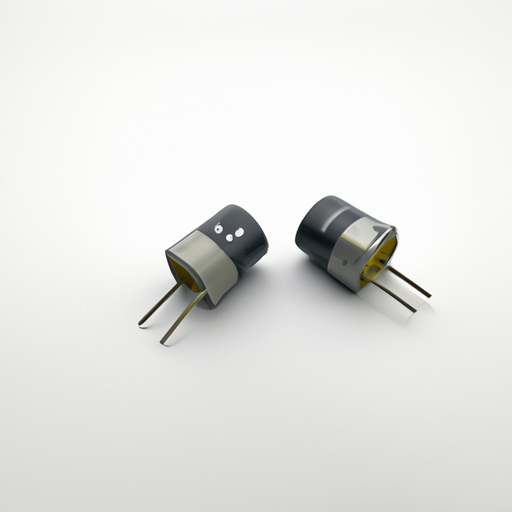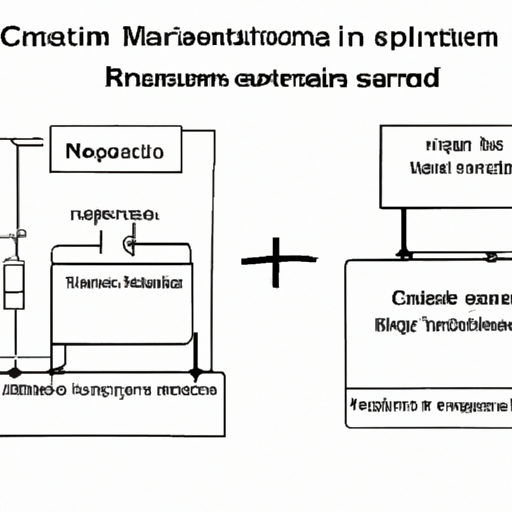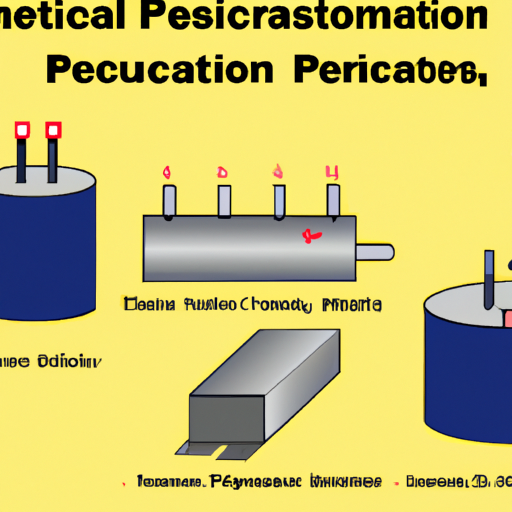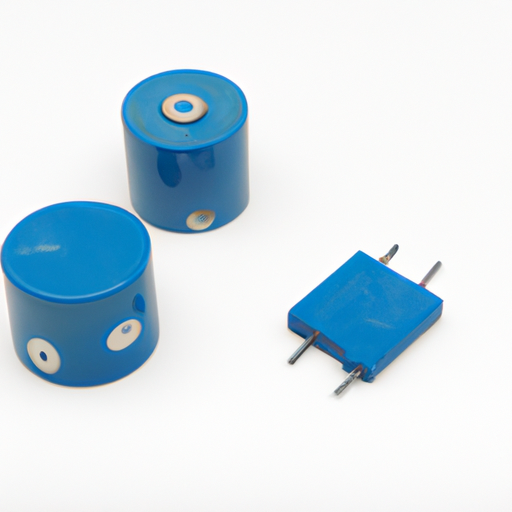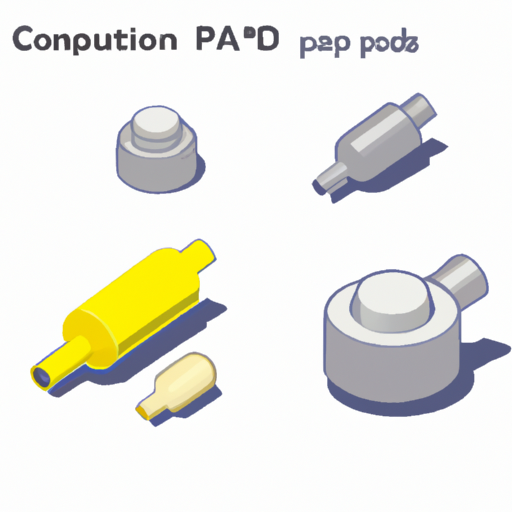What are the Product Standards for Air Conditioning Capacitors?
I. Introduction
Air conditioning capacitors are essential components in HVAC (heating, ventilation, and air conditioning) systems, playing a critical role in their operation. These electrical devices store and release energy, enabling the efficient functioning of motors that drive compressors and fans. Given their importance, product standards for air conditioning capacitors are crucial in ensuring safety, reliability, and performance. This article aims to explore the various product standards that govern air conditioning capacitors, their significance, and the future trends in this area.
II. Understanding Air Conditioning Capacitors
A. Function of Capacitors in Air Conditioning Systems
Capacitors serve two primary functions in air conditioning systems: starting and running motors.
1. **Role in Starting and Running Motors**: Start capacitors provide the necessary boost of energy to initiate the motor's operation, while run capacitors maintain the motor's efficiency during operation. Without these capacitors, motors would struggle to start or run effectively, leading to potential system failures.
2. **Energy Storage and Release**: Capacitors store electrical energy and release it when needed, which helps in stabilizing voltage and improving the overall efficiency of the air conditioning system.
B. Types of Capacitors Used in Air Conditioning
There are three main types of capacitors used in air conditioning systems:
1. **Start Capacitors**: These are designed to provide a short burst of energy to start the motor. They are typically used in single-phase motors and are disconnected from the circuit once the motor reaches a certain speed.
2. **Run Capacitors**: Unlike start capacitors, run capacitors remain in the circuit during the entire operation of the motor. They help improve the motor's efficiency and performance by providing a continuous supply of energy.
3. **Dual Run Capacitors**: These capacitors combine the functions of both start and run capacitors in a single unit, making them a versatile choice for many air conditioning systems.
III. Importance of Product Standards
A. Ensuring Safety and Reliability
Product standards are vital for ensuring that air conditioning capacitors are safe to use. They help prevent electrical failures, overheating, and potential hazards that could lead to fires or equipment damage.
B. Enhancing Performance and Efficiency
Standards ensure that capacitors perform optimally, contributing to the overall efficiency of air conditioning systems. High-quality capacitors that meet established standards can lead to lower energy consumption and reduced operational costs.
C. Compliance with Regulatory Requirements
Manufacturers must comply with various regulatory requirements to sell their products in different markets. Adhering to product standards helps ensure compliance with local and international regulations.
D. Protecting Consumers and Manufacturers
Product standards protect consumers by ensuring that they receive reliable and safe products. For manufacturers, compliance with standards can enhance their reputation and reduce liability risks.
IV. Key Product Standards for Air Conditioning Capacitors
A. International Electrotechnical Commission (IEC) Standards
The IEC develops international standards for electrical and electronic devices, including capacitors.
1. **Overview of IEC Standards Relevant to Capacitors**: IEC standards cover various aspects of capacitor design, testing, and performance, ensuring that products meet global safety and efficiency benchmarks.
2. **Specific IEC Standards for Air Conditioning Capacitors**: IEC 60252-1 is a key standard that outlines the general requirements for capacitors used in AC applications, including air conditioning systems.
B. Underwriters Laboratories (UL) Standards
UL is a global safety certification organization that tests and certifies products for safety and performance.
1. **Importance of UL Certification**: UL certification is recognized worldwide and assures consumers that the product has been tested for safety and reliability.
2. **Key UL Standards Applicable to Capacitors**: UL 810 is a standard specifically for capacitors, detailing safety requirements and testing methods to ensure product integrity.
C. American National Standards Institute (ANSI) Standards
ANSI oversees the development of voluntary consensus standards for products in the United States.
1. **Role of ANSI in Standardization**: ANSI facilitates the creation of standards that enhance product quality and safety across various industries, including HVAC.
2. **Relevant ANSI Standards for Air Conditioning Capacitors**: ANSI C37.90 outlines the performance requirements for capacitors used in electrical equipment, ensuring they meet safety and operational standards.
D. National Electrical Manufacturers Association (NEMA) Standards
NEMA develops standards for electrical products, including capacitors.
1. **Overview of NEMA's Role**: NEMA's standards help manufacturers produce high-quality products that meet industry expectations.
2. **Specific NEMA Standards for Capacitors**: NEMA MG 1 provides guidelines for the performance and testing of capacitors used in motors and generators, ensuring compatibility and reliability.
V. Testing and Certification Processes
A. Overview of Testing Procedures for Air Conditioning Capacitors
Testing is a critical component of ensuring that air conditioning capacitors meet established standards.
1. **Electrical Testing**: This involves assessing the capacitor's electrical characteristics, such as capacitance, voltage rating, and leakage current.
2. **Mechanical Testing**: Mechanical tests evaluate the physical integrity of the capacitor, including its ability to withstand vibrations and temperature fluctuations.
3. **Environmental Testing**: Capacitors must be tested for their performance under various environmental conditions, such as humidity and temperature extremes.
B. Certification Process and Its Significance
1. **Role of Independent Testing Laboratories**: Independent laboratories conduct rigorous testing to verify that capacitors meet the required standards. Their impartiality ensures that the certification process is credible.
2. **Importance of Compliance with Standards**: Compliance with established standards is essential for manufacturers to market their products confidently, knowing they meet safety and performance benchmarks.
VI. Challenges in Meeting Product Standards
A. Variability in Manufacturing Processes
Manufacturers may face challenges in maintaining consistent quality due to variability in production processes, which can affect compliance with standards.
B. Technological Advancements and Evolving Standards
As technology evolves, so do the standards. Manufacturers must stay updated with the latest requirements, which can be resource-intensive.
C. Global Market Considerations and Standardization
Different regions may have varying standards, making it challenging for manufacturers to ensure compliance across multiple markets.
VII. Future Trends in Air Conditioning Capacitor Standards
A. Increasing Focus on Energy Efficiency
With growing concerns about energy consumption and environmental impact, future standards will likely emphasize energy efficiency, pushing manufacturers to innovate.
B. Environmental Considerations and Sustainability
Sustainability will become a key focus, with standards evolving to address the environmental impact of capacitor production and disposal.
C. Innovations in Capacitor Technology and Their Impact on Standards
Advancements in materials and technology will influence the development of new standards, ensuring that they remain relevant in a rapidly changing industry.
VIII. Conclusion
Product standards for air conditioning capacitors are essential for ensuring safety, reliability, and performance. As the industry evolves, these standards will continue to play a crucial role in protecting consumers and manufacturers alike. It is vital for both parties to prioritize compliance and safety, fostering a culture of quality and responsibility in the HVAC sector.
IX. References
- International Electrotechnical Commission (IEC)
- Underwriters Laboratories (UL)
- American National Standards Institute (ANSI)
- National Electrical Manufacturers Association (NEMA)
By understanding and adhering to these standards, manufacturers can contribute to a safer and more efficient air conditioning industry, while consumers can make informed choices about the products they use.

